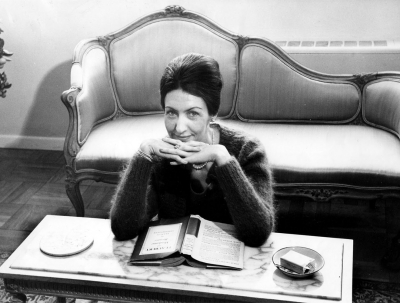Shirley Hazzard
In October 2009, Shirley Hazzard spoke at the New York launch of the Macquarie PEN Anthology of Australian Literature. Hazzard read from People in Glass Houses, her early collection of satirical stories about the UN bureaucracy. Her appearance serves to remind Australian readers that Hazzard continues to occupy a defining, if somewhat attenuated, place within the expansive field of what Nicholas Jose described in 2008, on taking up the annual Harvard Chair of Australian Studies, as ‘writing that engage[s] us with the international arena from the Australian perspective’. Jose went on to cite Hazzard’s most recent novel, The Great Fire (2003), as part of ‘a range of material which Americans would not necessarily think of as Australian’.
... (read more)And the winners are ...
The judges of the 2004 ABR Reviewing Competition were gratified by the level of interest in this competition and by the overall standard of entries. We received almost 100 entries (a third of them from subscribers). Fiction and non-fiction were evenly divided; there were rather fewer children’s/young adult book reviews. To no one’s surprise, the most popular book was Helen Gamer’s Joe Cinque’s Consolation: A True Story of Death, Grief and the Law, followed by Shirley Hazzard’s The Great Fire and Peter Goldsworthy’s Three Dog Night. In the non-fiction category, the field was eclectic, from poetry to memoir to academic monograph. The judge had to hand it to Alan Whitehead of Blackheath NSW, who chose to review the 2005 Sydney and Blue Mountains Street Directory. Next time we look forward to his critique of the telephone directory.
... (read more)Visiting Shirley Hazzard in Italy is like entering a Hazzard novel. She lives in an apartment within the grounds of a splendid villa at Posillipo. The rooms are cool against the summer sun, and when you step onto her terrace the vista and the light are dazzling. Scarlet bougainvillea falls in twisted festoons. From the terrace, she surveys the breathtaking scope of the Bay of Naples. To the left, the shadowy silhouette of Vesuvius. The long cluttered arch of the Neapolitan littoral holds the blue bay in its stretch. The Sorrentine peninsula seals off the southern edge, and out on the fringe, a blue punctuation, the island of Capri, where Hazzard also maintains a house.
... (read more)London seen through a haze of smoke and fire in J.M.W. Turner’s famous painting, The Burning of the Houses of Parliament, is the evocative cover image for Shirley Hazzard’s long-awaited novel. The Great Fire comes twenty-three years after Hazzard’s brilliantly composed, witty, and ultimately tragic work ...
... (read more)Why I’m gripped by this book I don’t know. Well, I do know. When I was in Vietnam late last year, on a gourmet tour, I purchased a pirated copy of Graham Greene’s The Quiet American, my first Greene novel. (Why I hadn’t read Greene before I also don’t know, though I’d loved his wonderfully bizarre script for The Third Man.) In Saigon I took green tea in the Hotel Continental, imagining I was sitting where Greene might have sat in the early 1950s. At last, I thought, I’m doing a bit of cultural geography. When I returned to Canberra, I read it, and immediately decided it was a great novel, extraordinarily prescient of the Vietnam War. What also impressed me was the sensibility of Fowler, the English narrator, resigned to knowing himself undignified, unkempt, duplicitous, lying, opium-enveloped, absurdly deluded in love; an active accomplice in murder, of Pyle the appalling American intelligence agent come to do good in Southeast Asia, and always innocent in his own eyes, whatever he disastrously does.
... (read more)The Transit of Venus has been widely acclaimed, and justly so: it is a great novel of passion and ambition, success and failure, written with elegance and wit, and magnificently structured. Still, despite the critical superlatives, few critics have attempted to come to grips with the power of Hazzard’s writing. There have been the inevitable comparisons with Jane Austen, and some attention has been paid to the symbolic connotations of the title, but little more. The prose and structure of the novel are worth examining in some detail because, seven years in the making, it is a most crafted and sculpted work of literary art.
... (read more)




